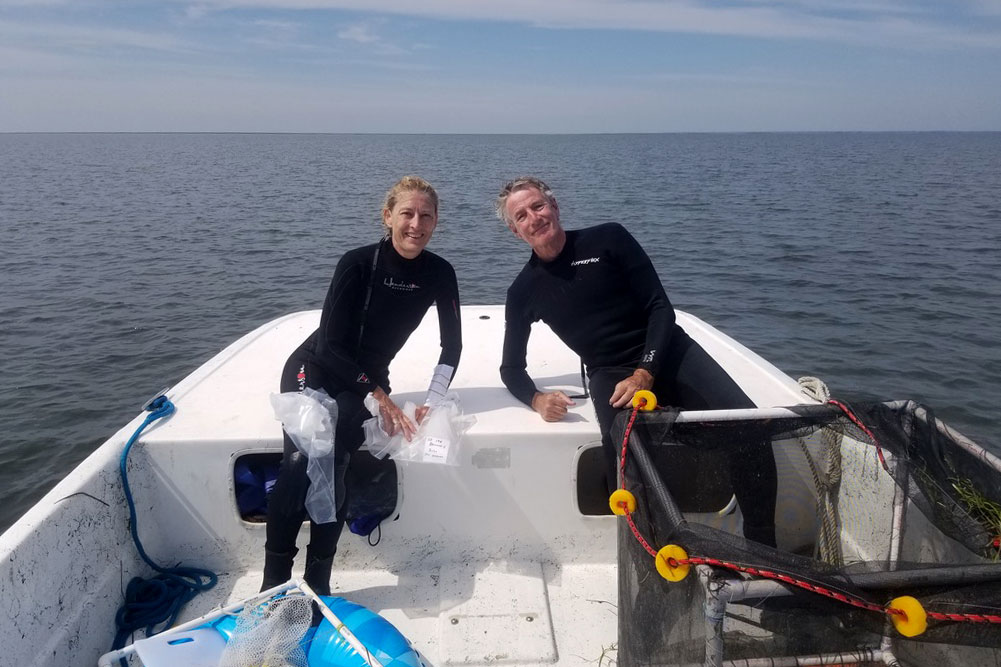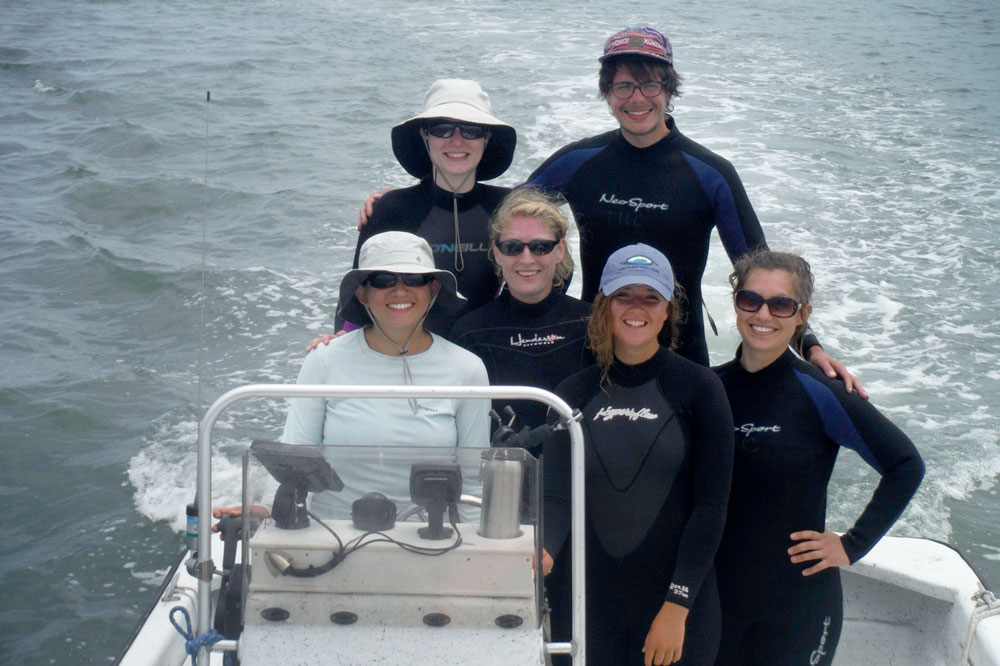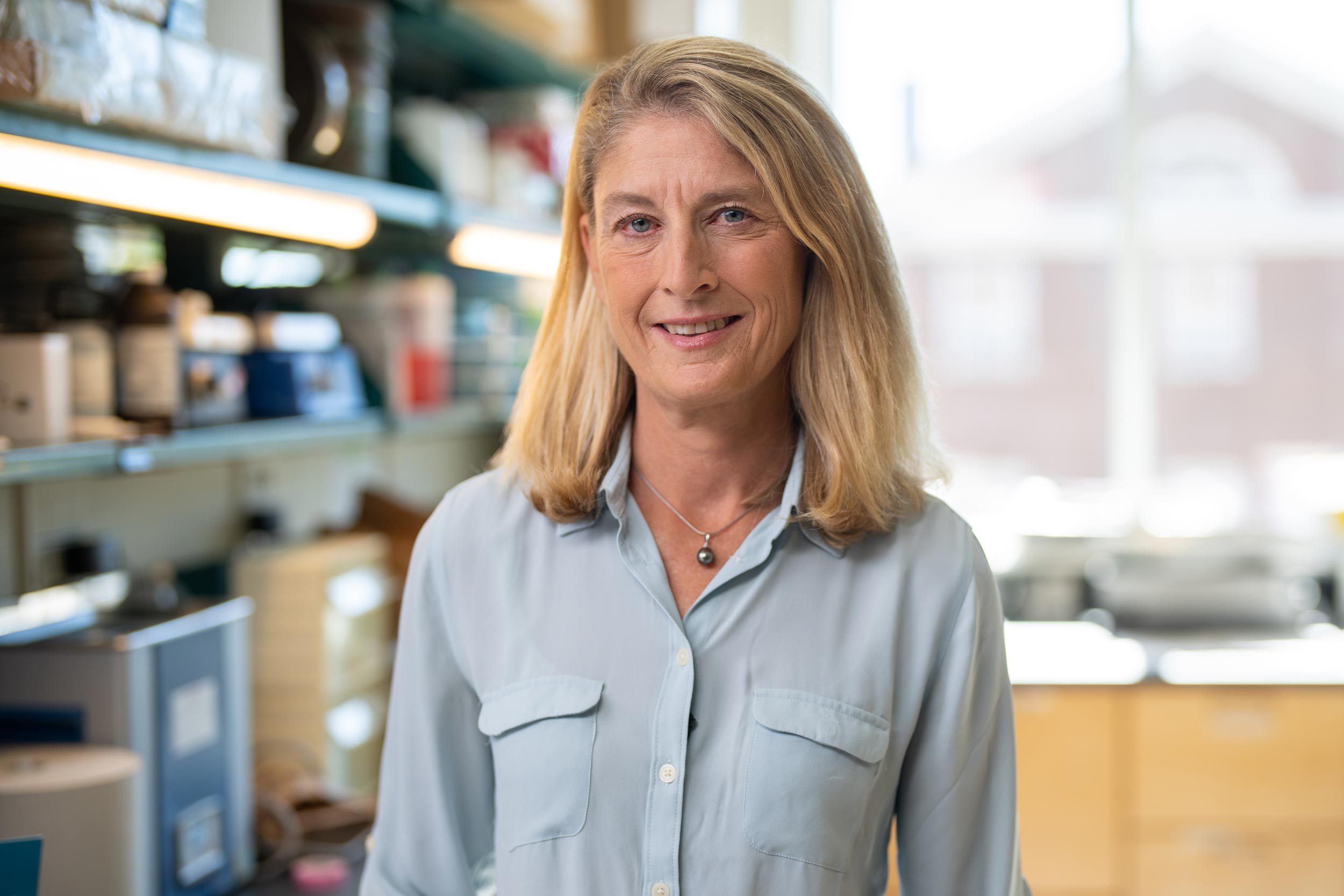As a child, when a storm would pass through, Karen McGlathery didn’t hunker down inside her family’s cottage on an island in Massachusetts. Instead, she would run to put on her “wellies” and raincoat and race outside to the beach with her grandfather to experience it more fully.
Since her childhood in New England, McGlathery has become the Sherrell J. Aston Professor of Environmental Sciences at the University of Virginia, the founder and director of UVA’s Environmental Institute, and, most recently, the winner of this year’s Elizabeth Zintl Leadership Award from UVA's Maxine Platzer Lynn Women’s Center, which recognizes a woman whose service and commitment to UVA is outstanding.
But McGlathery still loves watching storms.

McGlathery has a love for nature, particularly oceans, which began when as a child she would spend time with her grandfather on an island in Massachusetts. (Contributed photo)
“I still find it thrilling,” McGlathery said. “You feel the power of the ocean and of nature, and you feel awe.”
It’s a love she has passed on to her twin daughters. That early childhood experience is where McGlathery’s love for the natural world, and oceans in particular, were born.
“Marine science really entered my DNA largely because of my grandfather, and because of those experiences,” McGlathery said.
After graduating from Connecticut College with a degree in ecology in 1981, McGlathery went to work at an environmental nonprofit. After five years, she realized she was unlikely to progress in the organization without an advanced degree, but one woman more senior to her was a role model.
“She was just very real. She was very straightforward and honest, and didn’t have airs,” McGlathery said.
The UVA faculty and staff members who nominated McGlathery for the Zintl Award describe her in the same way.
“Karen has continued to leave the ladder down, open the door and pull other researchers through to do meaningful and actionable research on contemporary environmental and climate issues,” Charity Nylele, assistant professor of environmental sciences, wrote in a recommendation letter.
That mentorship started even before she was a UVA professor and the leader of the University’s interdisciplinary research institution on environmental issues. Christy Tyler, one of McGlathery’s first graduate students, saw her as an example when McGlathery, then a doctoral student at Cornell University, gave a lecture for a course Tyler was in.

McGlathery says she felt it was her responsibility to help break down barriers for women in science. (Contributed photo)
“I thought, ‘I want to be like that,’” Tyler, now a professor of life sciences at Rochester Institute of Technology, said. “Having a woman who was just 10 years older than me, doing the work I thought I wanted to do, was so cool.”
A couple of years later, as Tyler worked toward her master’s degree at UVA, she would sit on the search committee that brought McGlathery to UVA. McGlathery became an assistant professor at UVA in 1996, and quickly started trying to make the University a more hospitable place for women.
“I could see women who were senior to me, who broke down some barriers, and I felt some responsibility to do the same,” McGlathery said. “It could be something as small as moving the faculty meeting to be earlier in the day so parents could leave to pick up their kids from day care and not miss important decisions.”
Tyler recognized and appreciated that quality. As she began working on her doctorate, Tyler switched advisers to research with McGlathery and over time became her friend; they often celebrated their birthdays together, since they’re 10 years apart in age. That friendship was possible in part because of how “relatable” Tyler said McGlathery was.
“She showed me it was OK to wear a skirt and be a scientist,” Tyler said.
The mentorship even came full circle; Tyler was a mentor for students in a climate equity summit that McGlathery’s daughters organized at Hobart and William Smith colleges, where they were studying.
While McGlathery was encouraging, she was also honest, Tyler said. When McGlathery got pregnant with her twins before she had tenure, at a time when the University’s maternity leave policy was less generous, she admitted becoming a mother was difficult.
“I was worried about whether I could have kids and a job,” McGlathery said. “I’m lucky that my husband and I are great partners with our family, so we did it together. But it was scary.”







.jpg)


